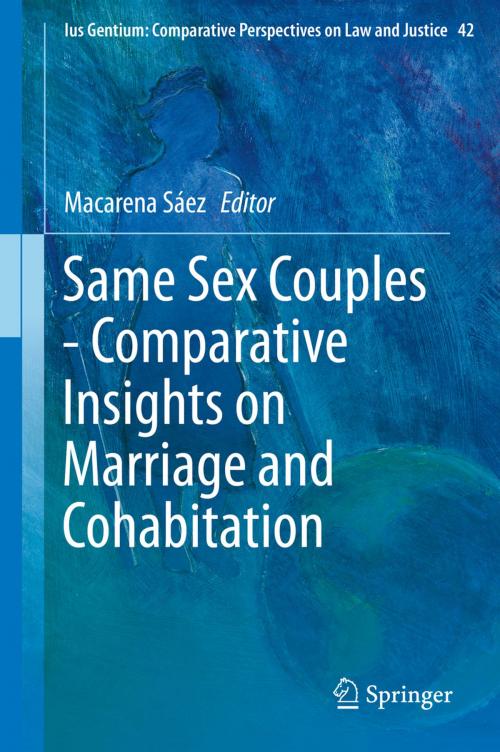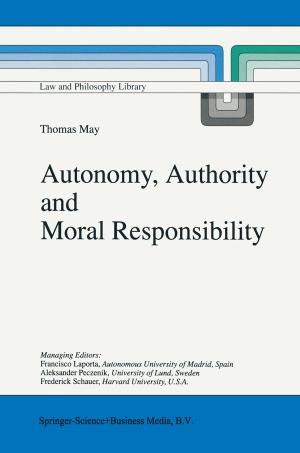Same Sex Couples - Comparative Insights on Marriage and Cohabitation
Nonfiction, Reference & Language, Law, International, Social & Cultural Studies, Social Science, Sociology| Author: | ISBN: | 9789401797740 | |
| Publisher: | Springer Netherlands | Publication: | May 6, 2015 |
| Imprint: | Springer | Language: | English |
| Author: | |
| ISBN: | 9789401797740 |
| Publisher: | Springer Netherlands |
| Publication: | May 6, 2015 |
| Imprint: | Springer |
| Language: | English |
This book shows six different realities of same-sex families. They range from full recognition of same-sex marriage to full invisibility of gay and lesbian individuals and their families. The broad spectrum of experiences presented in this book share some commonalities: in all of them legal scholars and civil society are moving legal boundaries or thinking of spaces within rigid legal systems for same-sex families to function. In all of them there have been legal claims to recognize the existence of same-sex families. The difference between them lies in the response of courts. Regardless of the type of legal system, when courts have viewed claims of same-sex couples and their families as problems of individual rights, they have responded with a constitutional narrative protecting same-sex couples and their families. When courts respond to these claims with rigid concepts of what a family is and what marriage is as if legal concepts where unmodifiable, same-sex couples have remained outside the protection of the law.
Until forty years ago marriage was the only union considered legitimate to form a family. Today more than 30 countries have granted rights to same sex couples, including several that have opened up marriage to couples of the same sex. Every day there is a new bill being discussed or a new claim being brought to courts seeking formal recognition of same sex couples. Not all countries are open to changing their legal structures to accommodate same-sex couples, but even those with no visible changes are witnessing new voices in their communities challenging the status quo and envisioning more flexible legal systems.
This book shows six different realities of same-sex families. They range from full recognition of same-sex marriage to full invisibility of gay and lesbian individuals and their families. The broad spectrum of experiences presented in this book share some commonalities: in all of them legal scholars and civil society are moving legal boundaries or thinking of spaces within rigid legal systems for same-sex families to function. In all of them there have been legal claims to recognize the existence of same-sex families. The difference between them lies in the response of courts. Regardless of the type of legal system, when courts have viewed claims of same-sex couples and their families as problems of individual rights, they have responded with a constitutional narrative protecting same-sex couples and their families. When courts respond to these claims with rigid concepts of what a family is and what marriage is as if legal concepts where unmodifiable, same-sex couples have remained outside the protection of the law.
Until forty years ago marriage was the only union considered legitimate to form a family. Today more than 30 countries have granted rights to same sex couples, including several that have opened up marriage to couples of the same sex. Every day there is a new bill being discussed or a new claim being brought to courts seeking formal recognition of same sex couples. Not all countries are open to changing their legal structures to accommodate same-sex couples, but even those with no visible changes are witnessing new voices in their communities challenging the status quo and envisioning more flexible legal systems.















